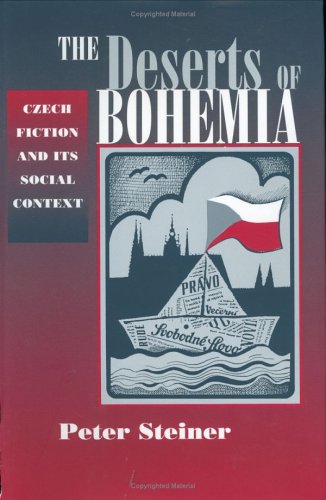Czech fiction in the 20th century was often deeply implicated in the nation's political life. Through a series of readings of major Czech texts in both literature and history, Peter Steiner challenges the view that literary works can be treated as aesthetically autonomous products distinct from historical events. Instead, he offers evidence of the ineluctable bond between literature and politics. Steiner engages six central works, ranging from novels to government documents; all, in his view, purvey ideological fictions that exerted significant social influence after they appeared. He begins with Jaroslav Hasek's 1920s novel "The Good Soldier Svejk", whose anti-authoritarian protagonist was widely emulated during the Nazi and Communist regimes, and ends with Vaclav Havel's play "The Beggar's Opera", through which Steiner explores the social role of Czech writing in the 1970s.
He also considers "Reportage" by Julius Fucik, which announces itaself as a documentary of the Communist party's heroic struggle against the Germans, but is, for Steiner, a fiction arising from Marxist-Leninist ideology; Karel Capek's "Apocryphal Stories"; Milan Kundera's novel "The Joke"; and the 1952 show trial of Rudolf Slansky, the General Secretary of the Communist Party.
- ISBN10 0801437172
- ISBN13 9780801437175
- Publish Date 15 March 2000
- Publish Status Out of Print
- Out of Print 9 January 2009
- Publish Country US
- Imprint Cornell University Press
- Format Hardcover
- Pages 272
- Language English
